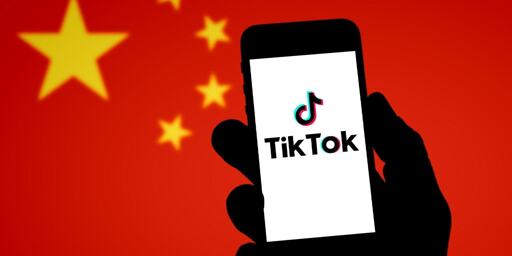A new study published in Frontiers in Social Psychology suggests that the popular social media platform TikTok may be manipulated to conceal content critical of the Chinese government while amplifying narratives aligned with the Chinese Communist Party (CCP). The research, which involved three separate studies, found that TikTok users were exposed to significantly less content critical of China compared to users of other platforms like Instagram and YouTube. Additionally, the study found that heavier TikTok users tended to have more positive views of China’s human rights record and were more likely to consider China a desirable travel destination.
Authoritarian regimes such as those in Russia and Iran have increasingly used social media to manipulate information and advance their strategic interests. China, in particular, has developed sophisticated strategies to control narratives and influence public opinion through digital platforms. This phenomenon, often referred to as “networked authoritarianism,” involves state actors using subtle tactics like algorithmic manipulation and strategic content curation to shape narratives on popular social media platforms.
These tactics are particularly effective because they are often invisible to users, making overt censorship or manipulation difficult to detect. Given that TikTok is owned by the Chinese company ByteDance, concerns have been raised that it may be susceptible to influence from the CCP, either directly or through algorithmic adjustments. The study aimed to assess whether TikTok’s content curation patterns differed from those of other social media platforms and, if so, whether these differences aligned with Chinese government interests.
“China is a communist country. The CCP has a vast propaganda apparatus and a long record of enforcing conformity to its preferences,” said study author Lee Jussim, a distinguished professor of psychology at Rutgers University and author of The Poisoning of the American Mind. “Many before us have raised concerns about whether the CCP exerts undue influence on TikTok to further its goals. We decided to empirically assess whether this was the case regarding issues about which the CCP was likely to be sensitive.”
…
The research, which involved three separate studies, found that TikTok users were exposed to significantly less content critical of China compared to users of other platforms like Instagram and YouTube.
Does this really imply that TikTok is manipulated to be pro-China, or that Instagram and Youtube are manipulated to be anti-China?
TikTok users tended to have more positive views of China’s human rights record and were more likely to consider China a desirable travel destination.
Also based on this line in particular, it seems like they’re marking travel content as “pro-CCP”, which is just nonsense. Xinjiang and Tibet are objectively beautiful, desirable, and popular tourist locations, and Tiananmen is literally the country’s second most famous tourist site after the Great Wall. That’s fact, not ‘the party line’.
Part of this difference might just be that this criticism isn’t new. As long as people who don’t like china stay away from chinese apps, you won’t see as much content from people who don’t like china
China, in particular, has developed sophisticated strategies to control narratives and influence public opinion through digital platforms. This phenomenon, often referred to as “networked authoritarianism,” involves state actors using subtle tactics like algorithmic manipulation and strategic content curation to shape narratives on popular social media platforms.
Almost every nation has such strategies and respective tech. That’s nothing new. I’m not making any claims about the extent to which particular nations are (ab)using these tools. But I do want to point out that this data is to be taken with a grain of salt
No, not China in particular.
Were you asleep the last decade, when the conservative propaganda machine instigated Brexit in the UK, conducted a fascist takeover of the USA, and increased fascist approval everywhere else?
I would like to make some criticism of the conclusions. The study correctly determines that TikTok is significantly more likely to contain pro-CCP content versus anti-CCP content than American platforms, but seems to assume this is a result solely of Chinese interference, and therefore the amount of anti-CCP content in other platforms is organic.
For reference, according to the study, over 30% of content on Tibet (a region known for its independence movements) on Instagram is anti-CCP. My region (the Basque Country) is also home to past and present pro-independence movements; imagine if 30% of all content about it on social media was not about its culture and landscape (which the article considers pro-CCP in the case of Tibet), but anti-Spanish posts, e.g. about the GAL.
Therefore, an equally, if not more, likely scenario is simply that American platforms contain a disproportionate amount of American propaganda, which is what the work cited by the article itself dealt with originally (manufacturing consent, specifically for economic or full-scale war).
See my comment above regarding the state actors. The Chinese government apparently tries to influence the narratives on Tiktok.
I would also like to make some criticism of the so-called ‘manufactured consent’. Chomsky and Herman made some points on corporate media, but their conclusion is wrong. People do not consent on news just because they can’t influence the content. You can ‘manufacture the news’ -as is done by corporate media in the U.S. and ‘the West’ as well as in China by the Communist Party- but that does not mean people consent.
*.ml users sweating profusely*



